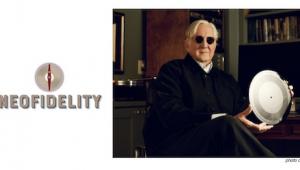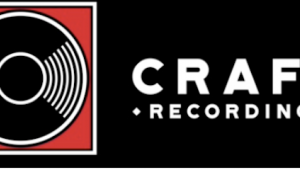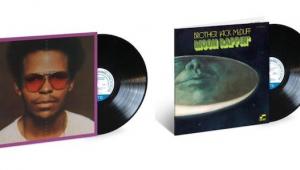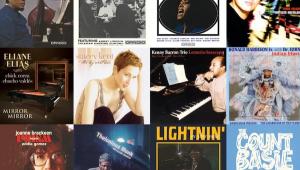I say match 'em up, upload again, perhaps even with an X variable this time, and let us all prove him wrong. By 'prove him wrong', what I really mean is, see what bullsh!t excuse he comes up with next.
Recent Cable Test Bogus? Can't We All Get Along?
That is the contention of a rather condescending individual who emailed me from The University of Texas.
His blog site is called "Musings, Thoughts on Science, Computing, and Life on Earth".
Under the heading "AUDIOPHILIA" (which I assume he considers a disease of some kind), he begins his post by writing: "Humans are hard-wired to find patterns. Even when there are none."
What this fellow claims is that if you precisely line up the two approximately 43 second file waveforms on Audacity, you will discover that File A gets to the same point towards the end of the clip 43 milliseconds faster than it does on File B. That he claims causes an audible pitch change that might not be heard as a pitch shift but will be heard as brightness.
As he points out, that's a 0.1% difference in speed. What is a 0.1% difference in speed? It's a 1000Hz test tone reproduced at precisely 33 1/3 and one reproduced at 1001Hz. And that's what we heard. Can that be? He claims that corrected the speed difference makes the files indistinguishable
He writes that the "wow and flutter" of my turntable caused it to run faster for File "A".
The only problem here is that while File "A" reached the same end point 43 milliseconds ahead of File "B", if wow and flutter was involved, it's more likely that the end point variation was caused by "wow and flutter" and not by an actual consistent variation in speed and that therefore the turntable did not really consistently run ".1% fast".
In other words, the speed remains at 33 1/3 but the minor speed fluctuations between the beginning and end of the file would cause the end-time difference. These wow and flutter events would be random within the two files, with the exception of low frequency 'wow' possibly caused by minor record eccentricities.
If, as he claims, lining up and overlaying the files makes them identical wave forms wherein no discernible differences can be noted, then the Continuum Caliburn is an even better turntable than I thought! In fact his observation would demonstrate that the turntable has pretty much "0" wow and flutter and that perhaps there's yet another variable involved. Or am I missing something?
He claims that if you correct for the speed difference, the files become sonically identical. But, is it possible that the "faster" file isn't really "faster" but simply ends 43 milliseconds sooner because of random wow and flutter variations during the course of the 43 second or so files and that actually the two are running at the same speed? Were that the case and were it possible to perceive a .1% speed difference as "brightness" or lack thereof, slowing down one of them would obscure the sonic difference by dulling somewhat the sound.
In other words, I'm not 100% convinced that even if his observation is true (I haven't lined up the files), his conclusion is correct. But then he goes into this 100% convinced that cables cannot possibly alter the sound. Read for yourself.
By the way, as you might imagine, my response to his post—because of tone, not substance— was (as he put it "testy"). So then after baiting me with his tone, he complained about my "testiness." That's how these folks roll.
- Log in or register to post comments


If you do that with these files he'll just immediately attribute it to the difference in connections. You know, that whole move the goalposts deal. Perhaps a new test is in order. Or even better yet, maybe we could just let him continue on in ignorance, and go back to enjoying our music.

I'm at work and can only listen to his files on headphones but I think his D is your B. I will also say It seems file D has a more open sound than C.
I didn't compare them I just went off of my memory, pretty scary.

I am not really a big "cable difference" guy, but when I hear a difference, even with these tired ears, then there is a difference and I feel good when I am not alone in hearing the "difference" as did many others, what is there to complain about? Science is about proof ans since this is a "audible hobby", why should I discount what I hear in lieu of maybe what I am unable to measure?
I remember years ago when you did your own personal din/phono cable test and wrote about the results and I was kind of shocked that some of the least expensive cables did as well as they did. Especially when some others were well over $1k for a set of phono leads and I am sitting here using something for under $50 on all my tables, but your test was very informative. You heard what you heard and it would probably take a great table like yours to reveal some of those differences. They are real differences none the less.
The same guy probably believes in life on other planets, even so far when we have no evidence. If there is I hope they get along better than we do. That global warming is probably working out well for him.
Excuse me while I go make myself a new tinfoil hat to keep the magnetic fields at bay. I can't let it affect my test of some new RCA cables I'm about to try.

Let's get our priorities straight. Who's the Geisha? There must be a story behind the photo

I cannot believe that this is still going on? WTF?? After 30 years of sobriety this blog might cause me to get stoned?
Geisha is Good..

MF, your points about the speed and wow and flutter are truths the wise blogger somehow failed to appreciate. I don't even want to bother tearing down his poor arguments other to add that I doubt I could hear the difference between 1000hz and 1001hz. The idea that this is causing brightness is misguided speculation. Perhaps we'll have to consult the Amazing Randy for the last word.

"Humans are hard-wired to find patterns. Even when there are none."
The dude's assertion that humans make errors because it's in our nature to do so only really tells us that he made an error. To which I say, "So what?"
This is right up there with that asshole who authored Ogg Vorbis, who claimed no one can hear improvements in lossless compared to lossy files, and yet his lossy files sound better than other lossy files.

The blogger started with a very dubious premise:
'That’s a 0.1% difference in speed (and hence pitch) of the recording. Such a difference, while too small to be directly discernible as a change in pitch, ought to be clearly perceptible as “brighter.”'
Too small to be 'directly discernible as a change in pitch' while at the same time 'clearly perceptible as “brighter”'? Most unlikely (to be kind; I think it's nonsense actually) and not befitting a blog claiming to be 'Thoughts on Science'.

Everything in audio has been debated to death. The whole process is silly since there are no correct answers to anything - except maybe that eating bacon while listening to audio is good. Machines cannot measure audio quality since that term is based upon human perception. Your test can be repeated as often as you like. Any blind test group will provide the same answers your initial test produced. It doesn't matter why some liked A compared to B. The fact is there were two distinct groups that heard differences and were relatively consistent in their likes and dislikes. Given those results there will always be different equipment manufacturers out there catering to the different groups.

I just read his post and it makes no mention of wow & flutter. Perhaps he has edited it? It only says "The far more likely explanation was that there was a 0.1% variation in the speed of Mr. Fremer’s turntable between the two recordings."

This all comes down to faith and science. The problem is, we all believe faith more than science, even those of us who think we believe in science. The folks who oppose your findings are doing so because they 'know" that any such investigation would show that cables don't matter. So any investigation that shows anything different is improperly designed. That is bad science, but normal faith. Karl Popper wrote extensively about how unscientific even scientists are! We are at best a mess of desires and faith and messiness, but some of us are more comfortable with that knowledge while others of us hide their bias behind a veneer of science. Anything different is a big chore! But man, the scientific veneer guys sure are humorless!
Trey

Why not do the same kind of test using a CD player, or a 192 K file? Then he can't say it's the length of a file. I've heard differences between cables using CD's. One thing that's always missing from these arguments is the time factor. I often began to notice subtle differences over time, but once noticed, they're no longer subtle. In the same way a yellow mustard stain on a nice tie would catch your eye, making it difficult to ignore, that's where my ear goes, to the thing I don't like.
I think some of these guys who have nothing better to do than try to prove that audiophiles are mistaken should be made to scientifically prove their not assholes, you'd never know it from the content of their diatribe.

Now that is a very short length of time. It is such a short length of time, could not the cables account for this time difference? The electrons took that much longer to find their way through cable B, than they did traveling through cable A? Maybe not. That is an awfully long time. Or, maybe they started 43ms apart? Or is an artifact of the AD converter? Perhaps the difference in capacitance of the cable caused the preamp to consume a bit more juice from the AC source, making the 'table run slower? Just too many variables involved to decide what could account for this great time difference in the digital files.
Yes, I am being sarcastic, I think?

trying to understand what Mikey said what the other guy said. Alls I know is that blessed are the hard of hearing because their wallet will be fat when they die. That and the fact that those ultra cheap (opposite of stereo)price cables sound awful.

"Humans are hard-wired to find patterns. Even when there are none."
"[Correcting] the speed difference makes the files indistinguishable."
At minimum, one of the above statements is false, since they contradict each other (unless they imply the writer isn't human, nor were any of his test subjects. Hmmmm.)

I certainly believe that well-made cables can make a difference. What I don't understand is how the price of a cable pair, however well-made, can exceed a coupla hundred bucks. I'm not being entirely sarcastic, here. I'd really like to know how these prices - into the thousands of dollars - are justified, purely from a manufacturing point of view.

As long as people are willing to buy somebody will sell them. Funny how some people find 2k headphones outrageous but ok to buy 15k cables LOL

Honestly Michael, I don't see how this guy is being particularly condescending. You have been doing this for so long I would think you'd have thicker skin by now. I say this as an admirer of all you've done over the years.




















































